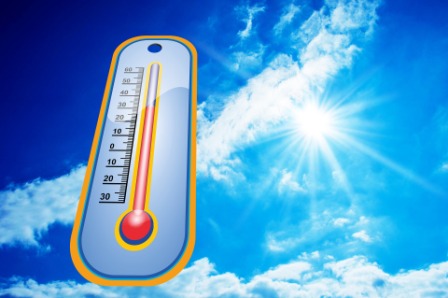Dementia and Heat Stroke in Nursing Homes – Your Legal Options

Heat stroke is a dangerous condition, especially in individuals that are advanced in age. This is because of the fact that heat stroke has been shown to cause neurological complications such as a burst blood vessel or the failure of major organs, leading to the sudden death. Senior citizens, especially those with dementia, are more likely to suffer heat stroke and be unaware of the condition and its dangers, necessitating round-the-clock care.
Did a loved one die at a nursing home due to heat stroke? Nursing homes owe your loved ones a duty of care to keep them safe in a manner that is reasonable at all times failure to which you may be able to recover compensation in the form of a nursing home injury legal claim. McCready Law has been protecting the rights of the forgotten in society, and we’d like to invite you to help us seek justice and compensation for your loved one. Please contact us NOW at (773) 322-1673 to learn more about your legal options. Remember, the call is 100% FREE, and there is no legal obligation.
Dementia is caused by the death of dopamine neurons in the brain. It is said to have a genetic component, and may show up at a certain advanced age should one have the genetic susceptibility. Individuals with dementia cannot talk, feed themselves, remember simple things, and are often forgetful, agitated, emotional and violent.
Heat Stroke and Senior Citizens in Nursing Homes
Heat-related deaths are said to occur in individuals that are 65 years and older. This is because the hypothalamus, which regulates temperature, becomes less effective as one goes up in age. In addition, dementia affects a person’s cognition which makes it difficult for the individual to notice the warning signs of heat stroke. In addition, seeking shelter due to excess heat may not be on the minds of people with dementia unless they are being monitored by nursing home assistants who will then move them to a shaded area. Lastly, medications prescribed people with dementia may cause them to sweat less, which increases dehydration and the risk of heat stroke.
Here are some warning signs that may signal heat stroke:
- Flushed skin
- Vomiting
- Confusion
- Altered mental state
- Fast pulse
- Fast heart rate
- Pinpoint pupils
- Unconsciousness
Here are some of the ways heat stroke can be prevented in nursing homes:
- Close monitoring of residents with dementia during hot days
- Limiting physical activity when it’s extremely hot
- Asking residents to stay indoors during certain sun-heavy hours
- Provide misting bottles and fans during summer
- Asking residents to take regular baths or showers to keep cool
- Monitoring residents that take medication which are known to dehydrate
Nursing Home Attorneys for Heat Stroke – Call Us Today!
Nursing home attendants can negligently fail to take the measures above, thereby leading to heat stroke in the elderly, and even death. In such instances, both this individual as well as the nursing home may be held liable for your loved one’s heat stroke and their demise. You may be able to sue for funeral costs, past and future medical bills, pain and suffering, loss of life enjoyment and so much more. Please contact us NOW at (773) 322-1673 to learn more about your legal options for compensation. We look forward to hearing from you.

